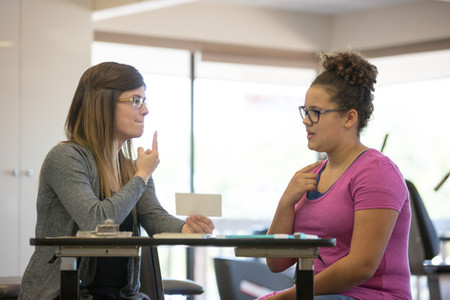Unlocking the Power of Aphasia Therapy: A Guide for Families After Stroke
- Anne Shaknis Quirk
- Oct 11, 2023
- 3 min read
Updated: Oct 19, 2023
Stroke can be a life-altering event, not only for the individual who experiences it but also for their loved ones. Among the many challenges that stroke survivors face, aphasia can be one of the most perplexing. Aphasia is a linguistic impairment associated with brain lesions, often caused by a stroke. Communication difficulties can be frustrating and isolating for both the stroke survivor and their family. Multiple studies have explored the importance of aphasia therapy and how it can make a significant difference in the recovery journey after a stroke.
Aphasia is a complex condition, and it affects each individual differently. This linguistic impairment can impact expressive and receptive language skills, making it challenging for the stroke survivor to communicate effectively. The severity and type of aphasia vary, but the common thread is the struggle to convey thoughts, feelings, and needs.
The Importance of Post-Stroke Aphasia Therapy: Aphasia therapy, provided by qualified speech and language therapists, plays a crucial role in the recovery process. The goal of aphasia therapy is to help stroke survivors regain their ability to communicate, thereby improving their quality of life. Let's delve into the key reasons why aphasia therapy is essential:
1. Communication is Connection: Effective communication is the key to maintaining relationships and staying engaged in life. For stroke survivors, therapy can help rebuild their ability to connect with loved ones and participate in social activities. 2. Empowerment Through Progress: Aphasia therapy empowers stroke survivors by helping them regain their independence. As communication skills improve, individuals can advocate for their needs and make decisions about their daily lives. 3. Enhanced Quality of Life: Improved communication leads to a higher quality of life. It can reduce frustration and feelings of isolation, allowing stroke survivors to enjoy social interactions and leisure activities. 4. Holistic Support: Speech therapy often includes addressing cognitive and psychosocial aspects of aphasia. This holistic approach ensures that the individual receives comprehensive care and support.
If you're exploring ways to help a loved one recover after a stroke, consider the benefits of aphasia therapy. As you make this important decision, keep the following factors in mind which True Self Speech Therapy makes a priority:
1. Tailored Treatment: Look for speech therapy providers who offer individualized treatment plans. Each person's experience with aphasia is unique, and therapy should be tailored to address specific needs and goals. 2. Qualified Professionals: Ensure that the therapist providing treatment is qualified and experienced in aphasia therapy. Qualified therapists have the skills and knowledge to make a meaningful difference in your loved one's recovery. 3. Supportive Environment: Seek a therapy provider who fosters a supportive and encouraging environment. The emotional aspects of recovery are just as important as the linguistic ones, and a caring atmosphere can make a significant difference.
Aphasia can be a daunting challenge for both stroke survivors and their families, but it's important to remember that progress is possible. Aphasia therapy, provided by skilled and empathetic professionals, can help individuals regain their ability to communicate, fostering connections and improving their quality of life. If you're seeking assistance for a loved one who has experienced a stroke, consider the benefits of aphasia therapy. By choosing the right therapy program, you can play a vital role in their journey to recovery and rediscovery of the power of communication.
Greener J, Enderby P, Whurr R. "Speech and language therapy for aphasia following stroke." Cochrane Database of Systematic Reviews 1999, Issue 4. Art. No.: CD000425. DOI: 10.1002/14651858.CD000425. Accessed 11 October 2023.
Disclaimer: This blog post is for informational purposes only and should not be considered a substitute for professional medical advice. Please consult with a qualified speech pathologist for a personalized evaluation and treatment plan.










Comments